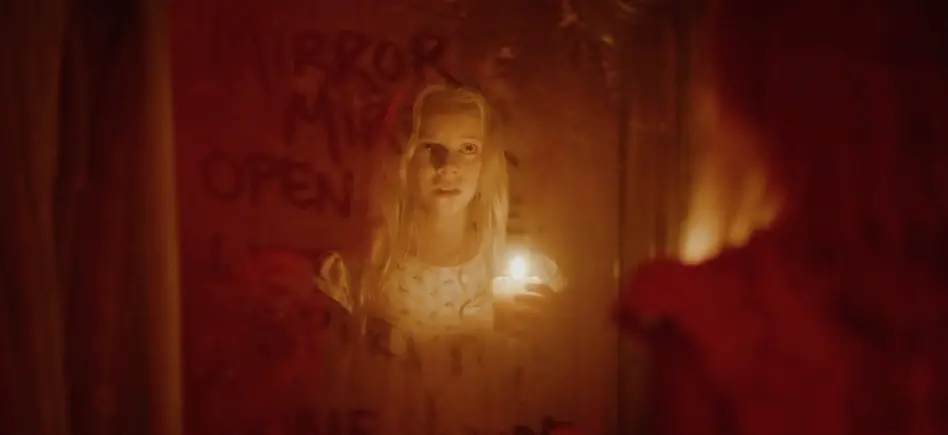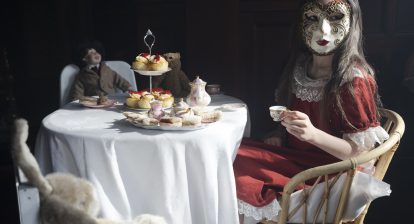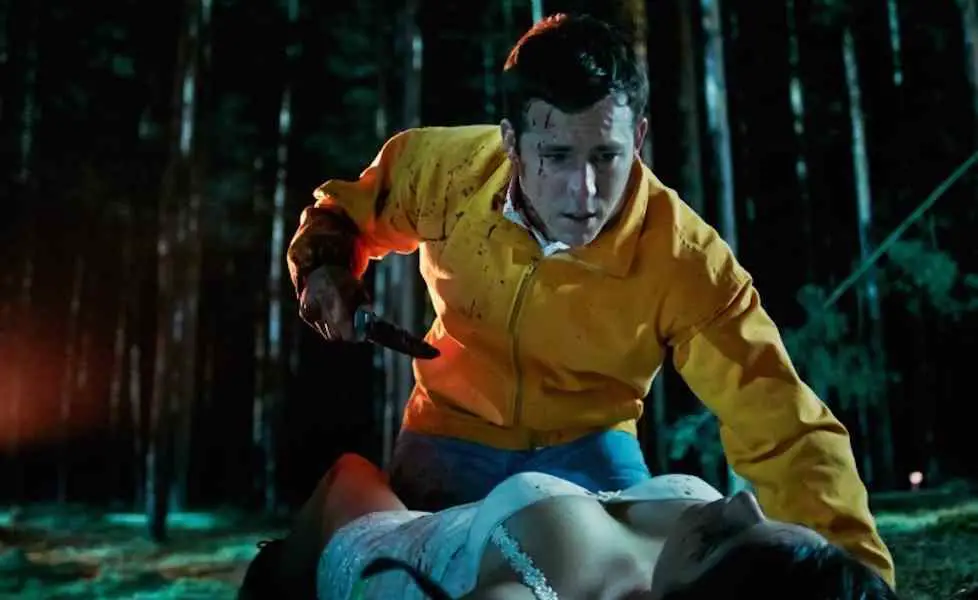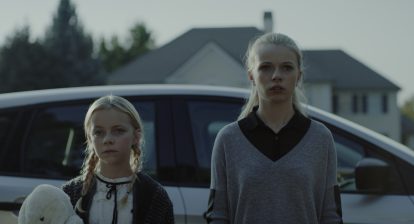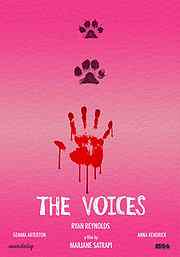During this period of quarantine, there has been an abundance of horror films released. From the rock and roll satanic cult tale We Summon the Darkness to the snowy Witches in the Woods, right now there is something out there for every horror lover. Two other titles that are creating some buzz, Vertical Entertainment’s Behind You (released April 17) and Cinedigm Entertainment Group’s The Voices (bowing May 12). Besides sharing a genre, both of these titles have something else in common, composer Christian Davis. Davis created unique original scores for these two stories that not only add another layer of depth to the characters, but also heightens the scares. Since the score in horror projects plays a particularly crucial role, we spoke with him more in depth about his work on both features.
Wicked Horror: What was the initial appeal of Behind You for you?
Christian Davis: I was seeing some on-set photos on social media that looked amazing and it had been a while since I had done a horror score, so I really wanted the gig and was lucky enough to get it.

WH: During the beginning of the film when the girls are driving to their aunt’s house, the score is very serene and gentle. Was this to symbolize hope and optimism for the sisters?
Christian Davis: Yes. You never want to give too much away. At this point all we know is these two girls have lost their Mom and are going to live with an estranged Aunt they’ve never met. I’m always trying to keep the score in the moment and not do too much foreshadowing.
WH: Was there a scene in Behind You that was particularly difficult to score?
Christian Davis: The scene where Claire is having an allergic reaction to peanut butter. The little girl who plays Claire (Elizabeth Birkner) did an amazing job. As a father, watching this little girl almost die was harrowing and I had to watch it over and over again while writing music to it.

WH: When Olivia is forced to take the pill in the front hallway, that musical sequence is really great. When she opens and closes her eyes there is an intense swishing sound. Was that done by you or the sound designer?
Christian Davis: It’s a very cool musical effect. But I’ve got to give kudos to the sound designer, Dan Pugsley for this, he did a really great job on the whole film. Great sound design, great mix!
WH: You used hissing tea kettles and chainsaws in your score for Behind You. Where can we hear those in the film?
Christian Davis: The hissing tea kettles are used a lot when there is a tension rise, and the chainsaws are used as percussive hits. On the second track from the soundtrack album, the track “Leads To Death,” you can hear the chainsaw at 1:04 and then the tea kettle from 1:42 to the end. To be more specific it’s the sound of starting a chainsaw engine, where you pull the crank and the engine turns over then sputters.
WH: You recently said that the biggest cliché you try to avoid is repeating or copying myself. How do you keep things original and fresh? How did you with Behind You?
Christian Davis: The first thing I do is create a unique “sonic palette” for each movie. I take the template I had from the last film I did, then I delete all the unique sounds out of it and spend a week or so searching and creating new sounds for the new film. As the project continues, more sounds will be developed, but as long as I clean my canvas before starting it will force me in new and unique directions.
WH: Just like films, do scores normally tell a story with a specific beginning, middle and end?
Christian Davis: Absolutely! My job as a film composer is to support and serve the movie and the story that the director is trying to tell. So I find that my scores, will inherently follow the structure of the film. I can always listen to my favorite scores and visualize what part of the movie is being told in the music.
WH: You also scored the upcoming horror film The Voices. You have said that you went with a smaller sound because the film is more intimate. How else would you describe the score?
Christian Davis: I would also say that the score to The Voices is probably more traditional, almost a drama score with a little weirdness thrown in. We wanted to keep the viewer unsure about what was and wasn’t real. Our protagonist, Grace, is constantly wondering if what she is seeing is real or a psychological delusion. So we tried very hard to make sure the music wouldn’t give that away.
WH: Can you tell audiences what they can expect with The Voices?
Christian Davis: I think they can expect a fun, psychological thriller where you’re constantly questioning reality until the end.
Christian Davis’s Behind You score is now available digitally.
